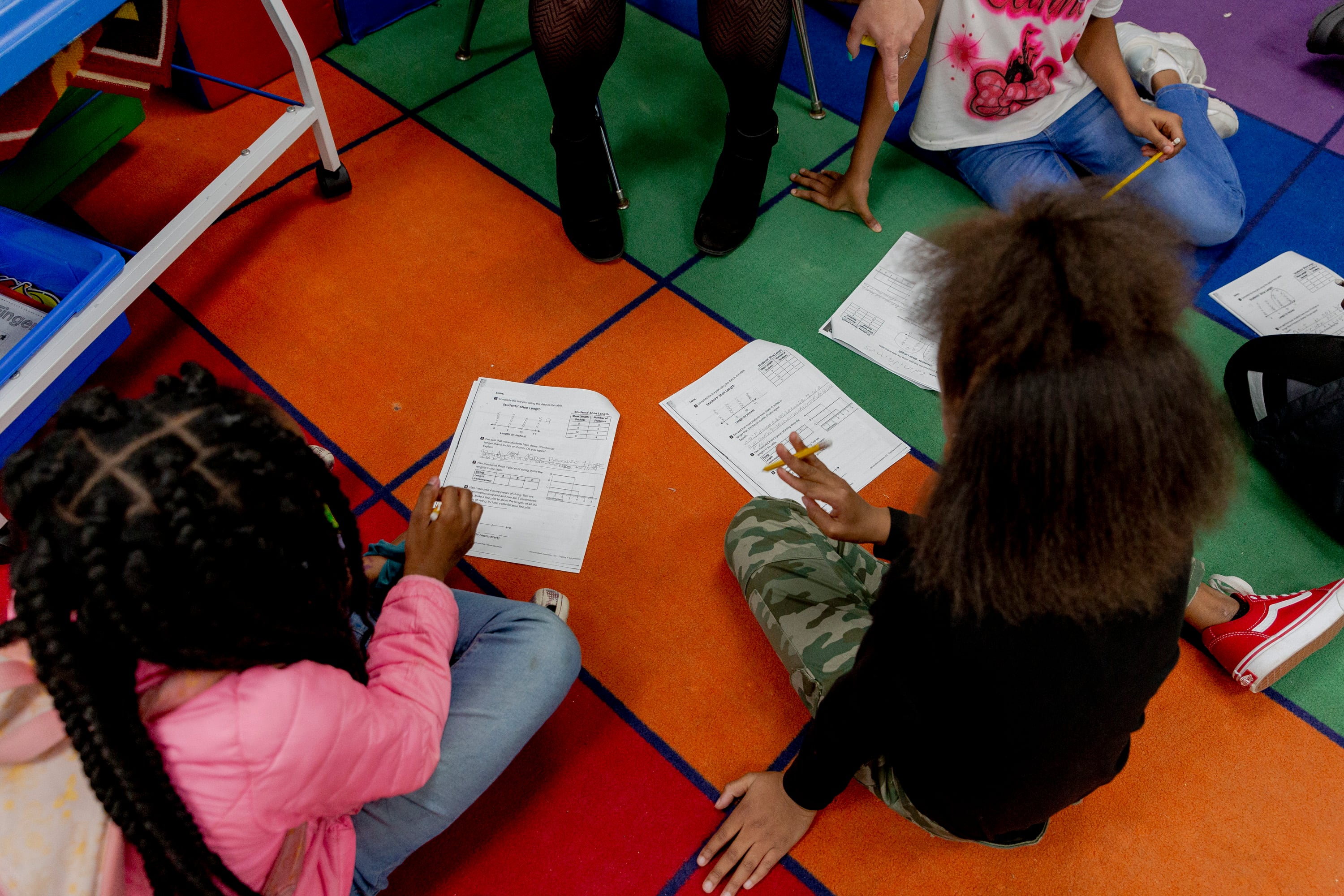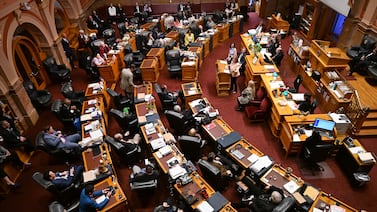Many schools want to tutor students during the school day, when research shows they are more likely to benefit from the extra help.
But one roadblock continues to stymie school leaders: Students often can’t squeeze tutoring into their schedule.
A new $10 million initiative announced on Wednesday aims to change that by tapping five states to set up tutoring programs and develop model policies other states could copy.
The goal is to make it easier for schools across the country to get help to kids during the school day — at a critical time when COVID funds are winding down and many tutoring programs have reached only a small fraction of students.
“What we’ve seen is evidence showing that out-of-school tutoring just doesn’t have as high of an uptake,” said Kevin Huffman, the head of the nonprofit Accelerate, which awarded $5 million in grants to the states. “If you’re going to serve the highest-need kids, you have to figure out how to embed it during the school day.”
Each of the states that were chosen for the initiative — Arkansas, Colorado, Delaware, Louisiana, and Ohio — will spend $1 million of their own money and receive another $1 million from Accelerate, which was launched last year by the nonprofit America Achieves with the help of $65 million in private philanthropy. (That included money from the Bill and Melinda Gates Foundation, which also funds Chalkbeat.)
Accelerate also is involved in two sweeping research efforts announced last year that are looking at tutoring initiatives across the country to identify programs that are worth schools’ time and money.
States in the newly announced initiative will tackle similar work.
That could include providing districts with advice on how to set up a school day to fit in tutoring for more students without running afoul of any state or federal rules. Or it could mean setting up better systems to track which students are getting tutored, how often, and whether the tutoring helped.
States may also assemble lists of companies that can back up their tutoring with research for districts to consult, and help districts draft contracts that require tutoring companies to demonstrate how they’ve helped students before they can get paid.
Some districts and states have cut ties with virtual tutoring companies that provide on-demand help, for example, after paying them millions in COVID relief funds only to find few students used the service.
“There are some programs and providers that haven’t delivered the kinds of results that they said they were going to deliver, whether that’s dosage, or attendance, or impact,” Huffman said. And some programs haven’t collected good data. “It’s really difficult for a district, especially a smaller district, to know who is good, and who is not good.”
The five states also will work with school districts to launch tutoring programs for elementary and middle schoolers in reading and math for the upcoming school year. It will be up to the school districts to decide who will staff those programs — Arkansas, for example, plans to use adults from the state’s tutor corps — but Huffman expects much of the tutoring work will be done in person.
The $10 million initiative may seem small compared to the billions schools received in federal funding during the pandemic, Huffman said, but Accelerate chose these states with an eye for coming up with policies that will support tutoring in the long run.
“Everybody is trying to figure out” what to do after the COVID relief funding runs out, he said. “Our hope is that, collectively, these five states working together will help figure out answers to some of these questions.”
Kalyn Belsha is a national education reporter based in Chicago. Contact her at kbelsha@chalkbeat.org.







